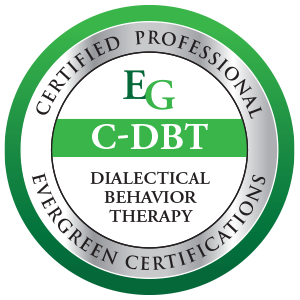|
Making the commitment to engage in couples therapy can be a courageous step towards healing and strengthening a relationship. However, as with any transformative process, questions and concerns may arise. One common worry is whether couples therapy can inadvertently exacerbate existing issues. In this blog post, we'll explore the nuances of this concern and shed light on how couples therapy, when approached thoughtfully, can be a positive force for change.
Understanding Apprehensions: It's entirely normal for couples to feel apprehensive about the potential outcomes of therapy. After all, the process involves delving into sensitive topics, addressing long-standing issues, and navigating emotions that may have been buried. However, the goal of couples therapy is not to make things worse but to provide a constructive space for couples to communicate, understand, and work towards positive change. Factors Influencing Therapeutic Outcomes:
In the hands of a qualified therapist and with the commitment of both partners, couples therapy is designed to facilitate positive change and enhance relationships. While the fear of things getting worse is valid, it's important to recognize that the intention of therapy is to address and resolve issues, not exacerbate them. If approached with an open mind, commitment, and the right therapeutic guidance, couples therapy can be a transformative journey towards a healthier and more fulfilling relationship. At Personal Life Wellness, we are here to support you on this path to positive change.
0 Comments
Every relationship faces challenges, and sometimes those challenges can become overwhelming. In such moments, many couples contemplate seeking professional help through couples therapy or marriage counseling. The burning question remains: Can couples therapy help? In this blog, we will delve into the key factors that can predict the success of couples counseling and explore various therapy models that have shown promising results.
a. Gottman Therapy: Developed by renowned psychologist Dr. John Gottman, this approach is grounded in decades of research on marital stability and divorce prediction. Gottman Therapy focuses on enhancing communication, resolving conflicts, and building emotional intimacy. Couples working with a Gottman-trained therapist may learn valuable skills to better understand and connect with each other. b. Emotionally Focused Couples Therapy (EFT): Rooted in attachment theory, EFT helps couples identify and transform negative emotional patterns into more positive ones. By fostering secure emotional bonds, EFT aims to create a stronger foundation for the relationship. Therapists practicing EFT guide couples through a process of emotional exploration and understanding, promoting a deeper connection.
In answering the question, "Can couples therapy help?" the key lies in the commitment of both partners and the choice of an evidence-based therapy model. Whether opting for Gottman Therapy, Emotionally Focused Couples Therapy, or another approach, couples who actively participate and implement learned skills are more likely to see positive outcomes. Remember, the journey to a stronger relationship begins with a shared commitment to growth and a willingness to explore the path together. Life is challenging and so relationships often encounter challenges that test the strength of the bond between partners. When facing these trials, many couples turn to marriage counseling, seeking guidance and support. You may wonder: Can marriage counseling help? In this blog post, we will explore the potential benefits of marriage counseling and shed light on how it can be a transformative tool for achieving personal and relational wellness.
The Landscape of Marriage Counseling: Marriage counseling, also known as couples therapy, is a specialized form of psychotherapy designed to help couples navigate challenges, improve communication, and foster a healthier relationship. It provides a safe space for couples to explore their feelings, address conflicts, and work collaboratively towards positive change. Key Elements of Marriage Counseling: Communication Enhancement:
Conflict Resolution Strategies:
Identifying Patterns and Dynamics:
Rebuilding Emotional Connection:
Individual Growth and Wellness:
So, can marriage counseling help? The answer lies in the willingness of both partners to actively engage in the process and embrace the guidance offered. It's a journey of self-discovery, mutual understanding, and shared growth. At Personal Life Wellness, we believe that every relationship has the potential for positive transformation. We use evidence-based approaches that have been proven in research to yield results to improve your probability of getting the outcomes you seek. By seeking marriage counseling, couples embark on a path toward greater connection, resilience, and overall well-being. Your journey to a healthier, happier relationship begins here. |
AuthorSejginha Williams, LMFT ArchivesCategories |
- Home
- ABOUT US
- Fees/Cost of Investment
-
Services
- Specializations
-
Helpful Articles
>
- How To Spot an Egotistical Personality—And Protect Yourself From It
- 10 Signs Your Partner Will Never Cheat, According to Therapists
- Blog: Navigating Relationships
- 10 Signs Your Partner Will Never Cheat
- Protecting Your Mental and Emotional Health: 7 Strategies for a Centered and Happy Life
- Eight Mistakes Couples Make After Betrayal
- Beyond Broken Trust: 5 Expert Insights for Navigating the Aftermath of Betrayal
- Six Strategies to Encourage Your Husband’s Therapy Journey
- High-IQ Support
- Clinical Supervision
- FAQs
- Contact Us

 RSS Feed
RSS Feed

